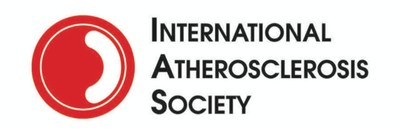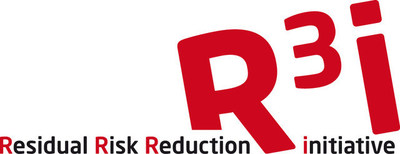International Atherosclerosis Society & Residual Risk Reduction Initiative Publish Consensus Statement on New Treatment for Residual Cardiovascular Risk


MILAN and BASEL,Switzerland,Sept. 3,2019 --A new highly selective treatment,a peroxisome proliferator-activated receptor alpha modulator (SPPARM-alpha) agonist,may help to address the gap in managing the residual risk of heart attacks and strokes in high-risk patients,according to over 50 world-leading experts from the International Atherosclerosis Society (IAS) and the Residual Risk Reduction Initiative (R3i). This residual cardiovascular risk persists despite guideline-recommended treatments for high blood pressure,cholesterol and glucose. This unmet clinical challenge,the focus of this Joint IAS-R3i Consensus Statement,was discussed in Paris,France on 1 September 2019.
Key among potential targets to reduce this residual cardiovascular risk is atherogenic dyslipidaemia,defined as high triglyceride (TG)-rich lipoproteins and their remnants with low levels of high-density lipoprotein cholesterol (HDL-C). Atherogenic dyslipidaemia is common in people with type 2 diabetes and/or in those who are overweight. According to IAS President Professor Raul Santos: "Atherogenic dyslipidaemia is implicated in residual cardiovascular risk. However,current treatment options are limiteddue to safety issues and interactions with other drugs."
To find an answer,experts took a "precision medicine" approach in which they synthesised and screened more than 1,300 compounds before identifying a novel agent with SPPARM-alpha activity,pemafibrate. "Because pemafibrate activates and represses a unique set of genes,it has higher potency and selectivity compared with fibrates,traditional non-selective PPAR-alpha agonists," said Professor Jean-Charles Fruchart,President of the R3i Foundation.
In phase 1 and 2 clinical trials,pemafibrate improved all markers of atherogenic dyslipidaemia,reducing TG by up to 50 per cent and remnant cholesterol,a causal cardiovascular risk factor,by up to 80 per cent. Pemafibrate also lowered inflammatory markers,such as C-reactive protein. Importantly,pemafibrate did not show adverse effects on the liver or kidneys,and did not increase serum creatinine. "These trials clearly show a superior benefit versus risk profile for pemafibrate over fibrates in a wide range of patients including those with chronic kidney disease," commented Professor Tatsuhiko Kodama,The University of Tokyo,Japan,a key investigator in these trials.
Pemafibrate also attenuated atherosclerotic lesion development in preclinical studies. Professor Shizuya Yamashita,President of the Japanese Atherosclerosis Society,said: "Based on all the evidence,pemafibrate may offer a new approach for reducing residual cardiovascular risk in high-risk patients with atherogenic dyslipidaemia,especially those with type 2 diabetes."
This is exactly what the PROMINENT (Pemafibrate to Reduce cardiovascular OutcoMes by reducing triglycerides IN diabetic patiENTs) study aims to answer. This international trial is testing whether reducing TG-rich lipoproteins with pemafibrate reduces cardiovascular events in 10,000 high-risk patients with type 2 diabetes,already treated with a statin. Unlike previous fibrate trials,PROMINENT specifically targets individuals with type 2 diabetes and atherogenic dyslipidaemia receiving current standard-of-care concomitant therapy,including effective statin treatment. "The scientific community eagerly awaits results from PROMINENT,due in 4-5 years,to determine if the translation of the SPPARM-alpha concept to the clinic can improve cardiovascular outcomes," said Professor Peter Libby,Harvard Medical School & Brigham and Women's Hospital,USA.
ABOUT THE IAS
The International Atherosclerosis Society (IAS) is a federation of member scientific societies from across the globe. The core mission of the IAS is to promote scientific understanding of the aetiology,prevention,and treatment of atherosclerosis. The IAS coordinates the exchange of scientific information among constituent societies,fosters research into how atherosclerosis develops,and helps translate this knowledge to improving the effectiveness of programmes designed to prevent and treat the disease.
ABOUT THE R3i
The R3i (Residual Risk Reduction Initiative) is a worldwide,academic,multidisciplinary non-profit organisation. Its core objective is to successfully address the excessively high risk of cardiovascular and microvascular complications that persists in patients who are already receiving the current standards of care to address abnormal lipid levels. The R3i is working to achieve this with an innovative global initiative of academic research,education and advocacy.
Related Links
https://www.athero.org/
https://www.r3i.org/
https://cardiab.biomedcentral.com/articles/10.1186/s12933-019-0864-7
https://clinicaltrials.gov/ct2/show/NCT03071692
References
Fruchart JC. et al. The selective peroxisome proliferator-activated receptor alpha modulator (SPPARMα) paradigm: conceptual framework and therapeutic potential. A consensus statement from the IAS and the R3i Foundation. Cardiovasc Diabetology (2019) 18:71.
Contact: info@r3i.org
Logo- http://cusmail.com/res/2023/07-22/18/df678632980f770a2b3d59b7cd7ce334.jpg
Logo - https://mma.prnewswire.com/media/968629/R3i_Logo.jpg